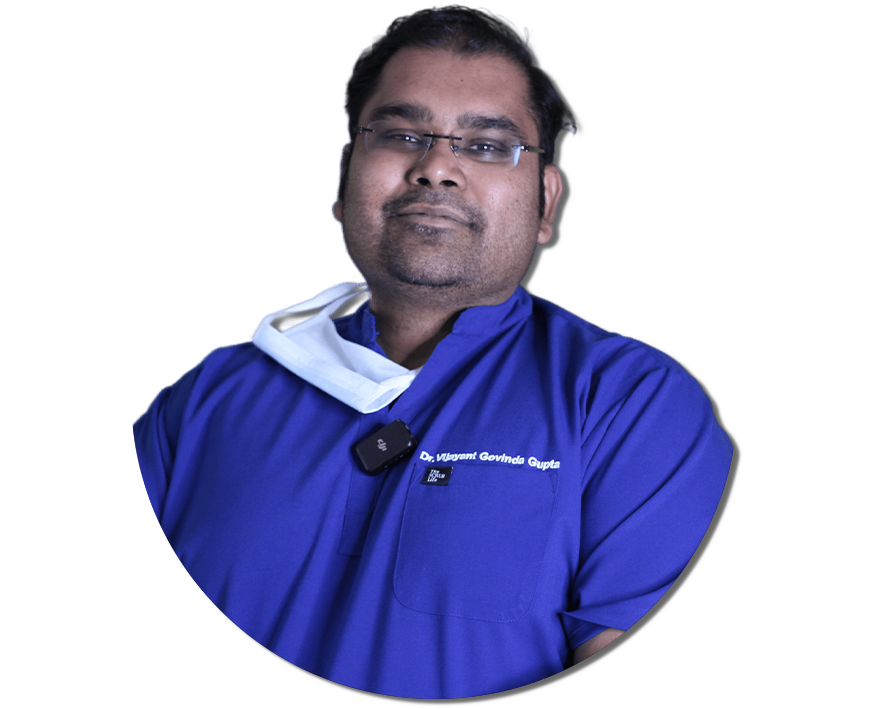Testicular pain is a concerning issue that many men experience at some point in their lives. It can range from mild discomfort to severe pain, affecting daily activities and overall well-being. Dr. Vijayant Govinda Gupta, a best andrologist in Delhi, India, with over 14 years of experience in men’s health, explains the various causes of testicular pain and their treatments.
Varicocele: A Common Cause of Testicular Pain
One of the most common causes of testicular pain is varicocele, a condition where the veins in the scrotum become enlarged due to improper blood flow. This occurs when the walls of the veins weaken, leading to swelling and pooling of blood.
Symptoms of Varicocele:
- Pain is usually felt in the left testicle rather than the right.
- A dragging or heavy sensation in the scrotum.
- Pain worsens throughout the day, especially with prolonged standing or physical activity.
- Feeling of enlarged veins upon touching the scrotum.
Diagnosis and Treatment:
- A simple ultrasound test, performed while standing, helps confirm the presence and severity of varicocele.
- Treatment options include medications, exercises, and in some cases, surgical correction.
- Surgery is recommended if the pain is severe or affects fertility.
Infections Leading to Testicular Pain
Testicular infections can cause significant pain and swelling. These infections are primarily caused by bacteria or viruses.
Common Causes:
- Mumps virus – Can spread through cough and cold, leading to orchitis (testicular inflammation).
- Bacterial infections – Often caused by sexually transmitted diseases (STDs) like chlamydia and gonorrhea.
- Infections can enter through the urinary tract and travel to the testicles.
Symptoms of Testicular Infections:
- Swelling and pain in the testicles.
- Fever and chills.
- Pus formation in severe cases.
Treatment:
- Antibiotics for bacterial infections.
- Pain relievers and anti-inflammatory medications for viral infections.
- In extreme cases, untreated infections may cause testicular abscess formation, requiring medical intervention.
Testicular Torsion: A Medical Emergency
Testicular torsion occurs when the testicle twists around the spermatic cord, cutting off blood supply. This is a medical emergency that requires immediate treatment within six hours to save the testicle.
Symptoms:
- Sudden, severe testicular pain.
- Swelling and redness in the scrotum.
- Nausea and vomiting.
Treatment:
- Immediate surgery to untwist the testicle and restore blood flow.
- If left untreated, the testicle may die, leading to reduced sperm count and hormonal imbalances.
Hernia and Hydrocele: Swelling and Discomfort
Hernia and hydrocele are conditions where fluid or intestines enter the scrotum due to a defect in the abdominal wall.
Symptoms:
- Visible swelling in the scrotum.
- Pain or discomfort that increases during the day.
- Swelling that reduces when lying down.
Treatment:
- Ultrasound is used for diagnosis.
- A minor surgical procedure can effectively treat both conditions.
Trauma and Injury to the Testicles
Minor injuries to the testicles often go unnoticed but can cause persistent pain.
Common Causes of Testicular Trauma:
- Accidental hits during sports like cricket or football.
- Pressure from sitting incorrectly or motorcycle tank impact.
- Sudden jerks or twisting movements.
Symptoms:
- Persistent pain, even without visible swelling.
- Pain during urination or sexual activity.
- Nerve damage leading to chronic discomfort.
Treatment:
- Pain management through medications and localized injections.
- Identifying nerve damage through proper medical examination.
When to See a Doctor?
If you experience persistent or severe testicular pain, it is crucial to consult a urologist immediately. Ignoring testicular pain can lead to severe complications, including infertility and hormonal imbalances.
How is Testicular Pain Diagnosed?
- Physical Examination – To check for swelling, tenderness, or lumps.
- Ultrasound Scrotum – To assess blood flow and structural abnormalities.
- Blood Tests – To check for infections and hormone levels.
- Semen Analysis – To evaluate fertility concerns.
Frequently Asked Questions (FAQs)
It depends on the cause. Mild pain due to minor injuries or strain may resolve on its own, but persistent or severe pain requires medical attention.
While testicular cancer is rare, persistent lumps or swelling in the testicles should be evaluated by a doctor to rule out serious conditions.
Yes, stress and anxiety can sometimes lead to muscle tension, which may contribute to discomfort in the testicles.
Certain conditions like varicocele, infections, and untreated torsion can impact sperm production and fertility.
Seek immediate medical attention, as it could be a sign of testicular torsion, which requires emergency treatment within six hours.
Read Also
- The Truth About Masturbation, Sperm Quality, and Sexual Health
- Delay Spray: Benefits, Risks, and Proper Usage
- Power of Vitamin D: The Secret to Overcoming Male Weakness, Fatigue, and Low Confidence
Testicular pain can indicate various underlying conditions, ranging from mild infections to serious medical emergencies. Timely diagnosis and proper treatment are essential to prevent long-term complications. If you or someone you know is experiencing testicular pain, seek professional medical advice immediately.
For more information on men’s health, subscribe to Dr. Vijayant Govinda Gupta’s channel and stay informed about the latest in male sexual health and wellness.
Visit Our Men’s Health Website


